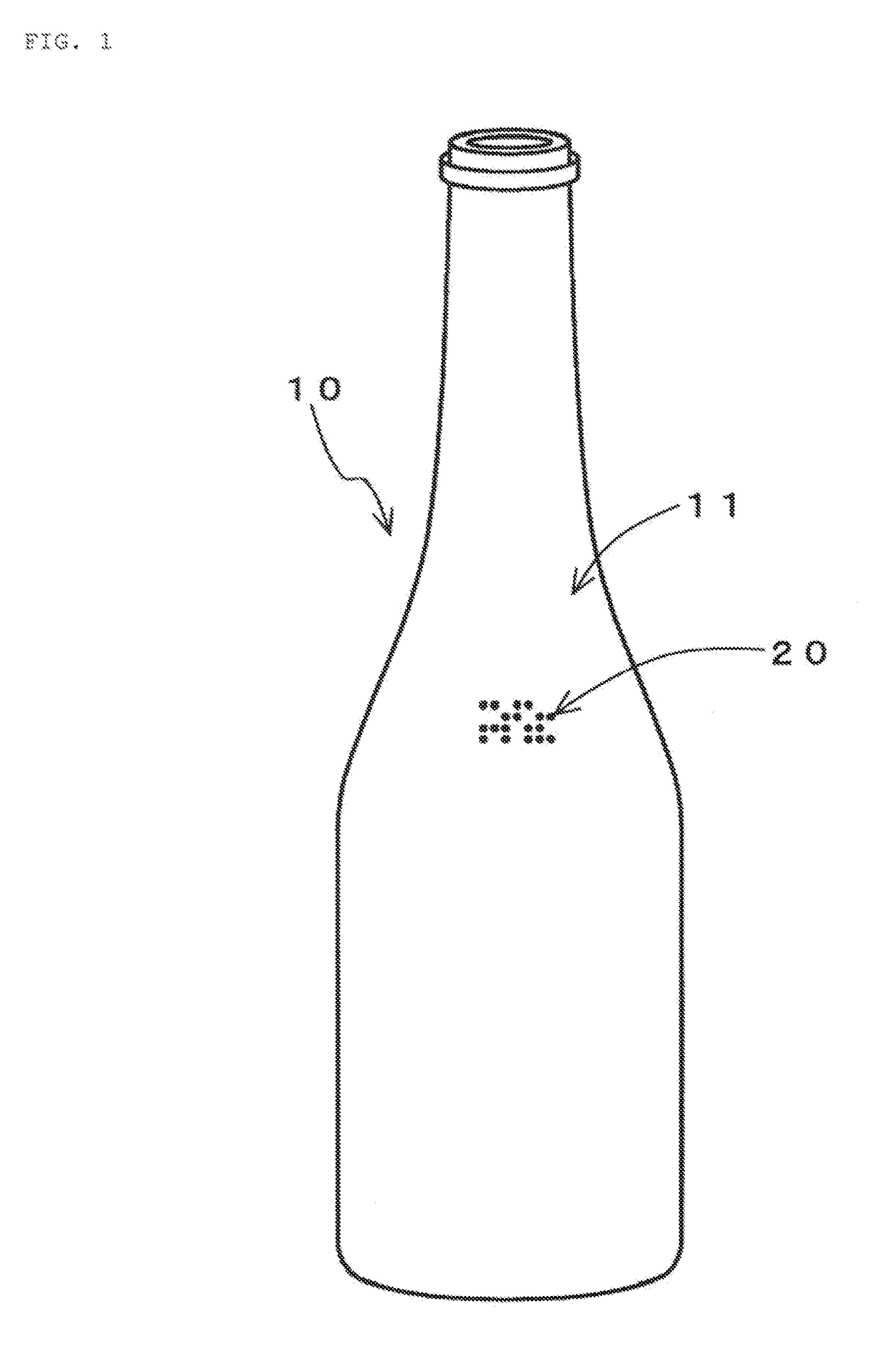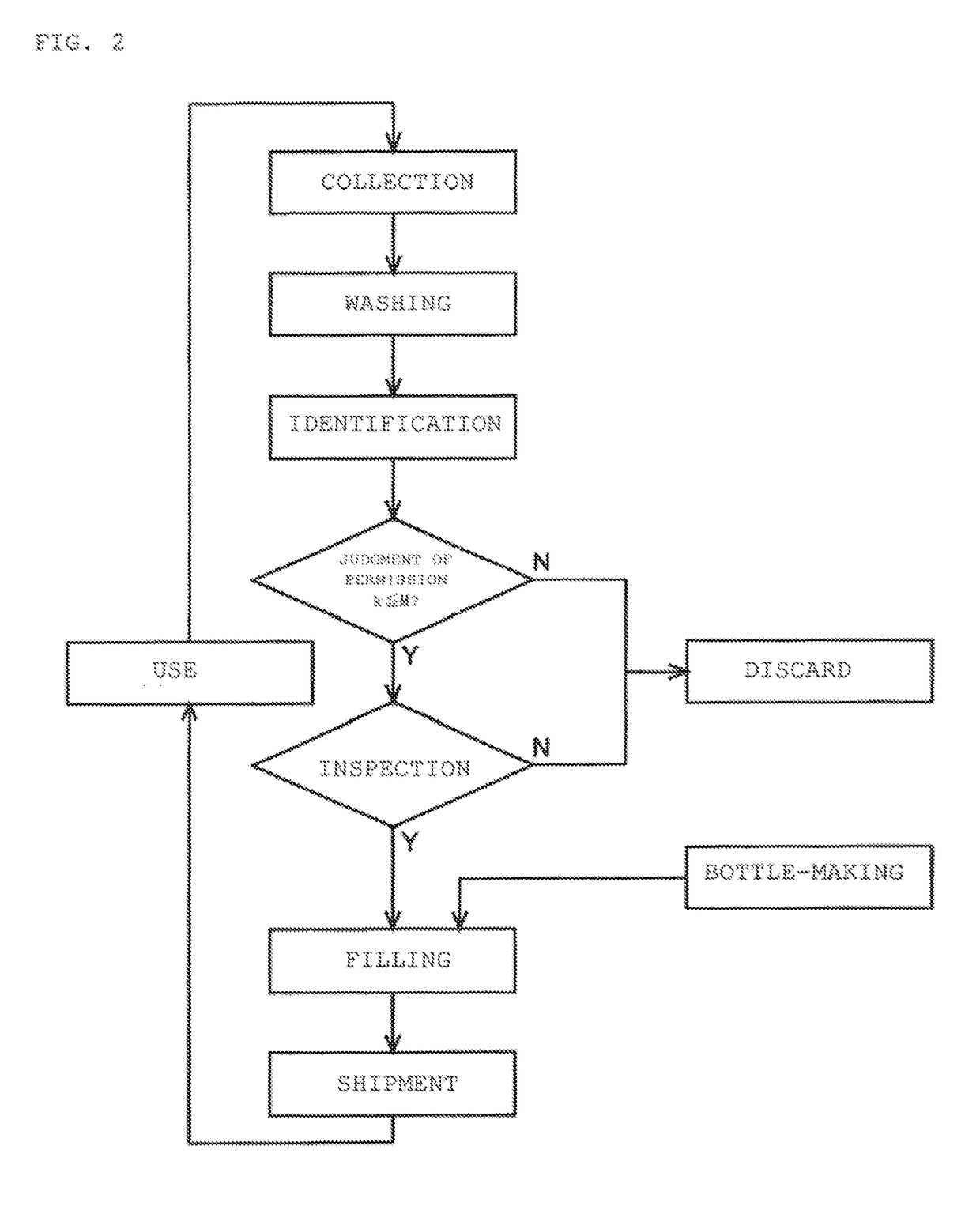Method of managing reuse of returnable bottle
- Summary
- Abstract
- Description
- Claims
- Application Information
AI Technical Summary
Benefits of technology
Problems solved by technology
Method used
Image
Examples
Embodiment Construction
[0018]Bottles are recycled by collecting the bottles from stores and local collection points, washing them at bottle dealers and bottle washing plants etc., refilling them at bottling plants, and shipping them out to stores in a continuously circulating system. In recent years, the entire process from washing to refilling has increasingly been handled ail together by bottling plants (manufacturers). The management method of the present invention is a management method enabling easy separation of reusable bottles from other bottles in the processes from the washing process to the refilling process.
[0019]The method of managing reuse of a returnable bottle according to the present invention is a method of managing a returnable bottle which is collected after use, washed, then refilled for reuse. As shown in FIG. 1, the surface 11 of the bottle body 10 of a returnable bottle is formed with a product identification mark part 20. The individual mark part 20 should be formed at a position ...
PUM
 Login to View More
Login to View More Abstract
Description
Claims
Application Information
 Login to View More
Login to View More - R&D
- Intellectual Property
- Life Sciences
- Materials
- Tech Scout
- Unparalleled Data Quality
- Higher Quality Content
- 60% Fewer Hallucinations
Browse by: Latest US Patents, China's latest patents, Technical Efficacy Thesaurus, Application Domain, Technology Topic, Popular Technical Reports.
© 2025 PatSnap. All rights reserved.Legal|Privacy policy|Modern Slavery Act Transparency Statement|Sitemap|About US| Contact US: help@patsnap.com


